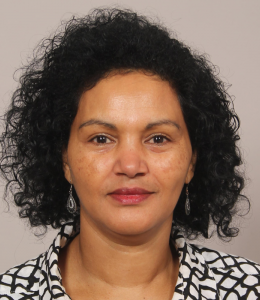
Biography
Azeb Amha is a linguist whose research interests lie in language description, language documentation, and the study of language and culture interface, dealing with spatial expressions, naming practices and worksongs. She has published The Maale Language (Leiden 2001), co-edited Omotic and Cushitic Language Studies (Cologne 2007) and several papers on Omotic languages of Ethiopia. Since 2006, she is the co-editor of the Journal of African Languages and Linguistics. From 2009 up to 2016 she was the academic coordinator of the Research Masters African Studies at Leiden University. Azeb is a researcher at the African Studies Centre Leiden, Leiden University.
Project Title: Predicate types and clausal structure in Zargula (Omotic, Southwest Ethiopia)
During my fellowship at the Institute, I will write two papers on Zargula, an Omotic language spoken in south-west Ethiopia.
The first paper will be a study of 'clause chains ', which are frequently used in narratives and conversations. A clause chain involves a series of dependent clauses that are terminated by one final main clause that is marked for tense and modality. Clause-chains are essential in understanding how information is packaged in language. It seems that a sentence with a clause-chain in Zargula or in related languages corresponds to a series of independent sentences within a paragraph in non-chaining languages such as English. Given that Zargula has morphological focus-marking, I will investigate how information structure (e.g., focus) and complex sentence structure are related.
In the second paper, I will address adjectival predicates in Zargula. Adjectives form an open class in the language. In their attributive function, adjectives occur in their lexical form, in the order ADJ – N. There is no agreement marking with the noun. I will discuss the way adjectival predicates are both similar to and distinct from nominal and verbal predicates. Some property denoting terms which I establish as a distinct lexical category (i.e., adjective) can be used in exactly similar ways as verbal predicates with complete tense and subject agreement marking. Other property denoting terms have distinct stems when used as attributive adjectives and full-fledged verbs. Semantic types of adjectives established in Dixon (1977, 1982) and Wetzer (1996) will be examined to check the possibility that certain semantic types employ more verb-like adjectives.
Data for my writing will be drawn from time-aligned annotations of audio-visual material I compiled over the past several years, supported by the Endangered Languages Documentation Programme at SOAS and by the Netherlands National Science Foundation (NWO), available open access.
